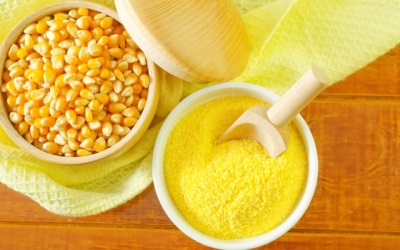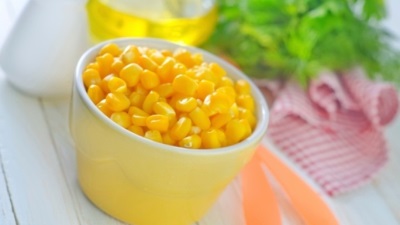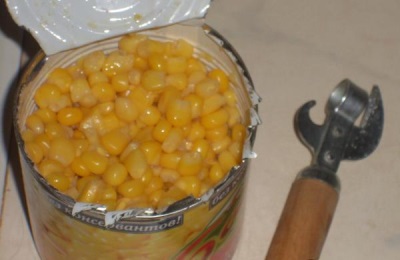At what age can corn be given to a child?
Cereals appear among the first in the diet of a small child. They are usually administered immediately after they become acquainted with vegetables, but there are situations when the food begins with cereals. Among the many cereals one of the most valuable for baby food is called maize.
Benefit
- Corn contains vitamins E, H, A, B, PP, magnesium, calcium, iodine and many other beneficial compounds.
- This cereal is rich in pectins and fiber, as well as valuable fats.
- Corn refers to cereals that do not have gluten.
- It does not accumulate harmful substances, therefore, is considered an environmentally friendly culture.
- Corn has a positive effect on digestion and the cardiovascular system.
Minuses
- Corn is not advised to use for problems with blood clotting and thrombosis, as well as diseases of the gastrointestinal tract.
- Excessive consumption of boiled corn can disrupt the work of the digestive tract.
From how many months can you put in feed?
Cornmeal porridge is introduced into one of the first children's diets. Breast-fed babies are introduced to her at the age of 6-7 months, and to an artificial slipshoot - from 5-6 months.
Due to the presence of dense rind in corn kernels, they are familiar with boiled cobs only after the appearance of a sufficient number of teeth and good chewing skills. Usually boiled corn is given not earlier than 1.5 years.
In what form to give?
Corn is introduced into the diet of the child gradually from a small portion. It is offered to the baby in this form:
- Corn porridge. First, it is boiled in water and diluted with breast milk or a mixture, and later such porridge is cooked in cow's milk.
- Boiled corn. It is boiled in clean water during the season when fresh young cobs are available, or at any other time from the cobs frozen during the season. Grains are separated and given to the child in small quantities, sometimes adding butter to them. For the first time, several grains are enough, then half a teaspoon of grains is given, and if the stool and general well-being have not changed, the total amount of the product is increased to 100 g. At the same time, corn in this form is not recommended for daily.
- Different dishes with boiled corn. It can be added to vegetable stews and soups in ground form for the smallest and in the form of boiled grains for older children. Corn can also be an ingredient in a salad or an omelette.
- Cake flour. In recipes for cookies, muffins, or other types of baking, wheat flour can be partially or completely replaced with corn flour.
- Popcorn. It is best to cook it yourself at home from dry grains, as there is often a lot of salt and oil in the ready popcorn.
In the next video of the TV show “Live Healthy”, you can learn more about the beneficial properties of corn.
Is canned corn useful?
When preserved, corn grain retains its beneficial properties, however, sugar and some other components that can cause an allergic reaction are added to the product. For this reason, canned corn can be given only to children older than a year.
Tips for choosing
Choosing fresh corn for the baby, buy young ears, ripened in the first months of summer. They should not be too large and hard, and the color of the grains should be light. Choose corn with tight-fitting leaves and no dry stigmas.
Store in the refrigerator such cobs can be a maximum of 3 days.
When buying canned food for children's dishes, give preference to a well-known manufacturer and by all means check the expiration dates indicated on the bank.
Pay attention to the preservation time - if the product was closed in summer, then fresh ears were used for it, and in late autumn or winter, canned corn is usually first dried, then soaked, boiled, and packaged.
Opening the package, inspect the grain (they should not be crumpled) and before giving the child, by all means try them. Keep an open can of corn in the fridge for no longer than two days.
What to do if you are allergic?
Although corn is treated with hypoallergenic cereals, for some babies this product can cause an allergic reaction.
In this case, the corn is excluded from the diet of the baby and turn to the pediatrician for the selection of a suitable treatment.

































































